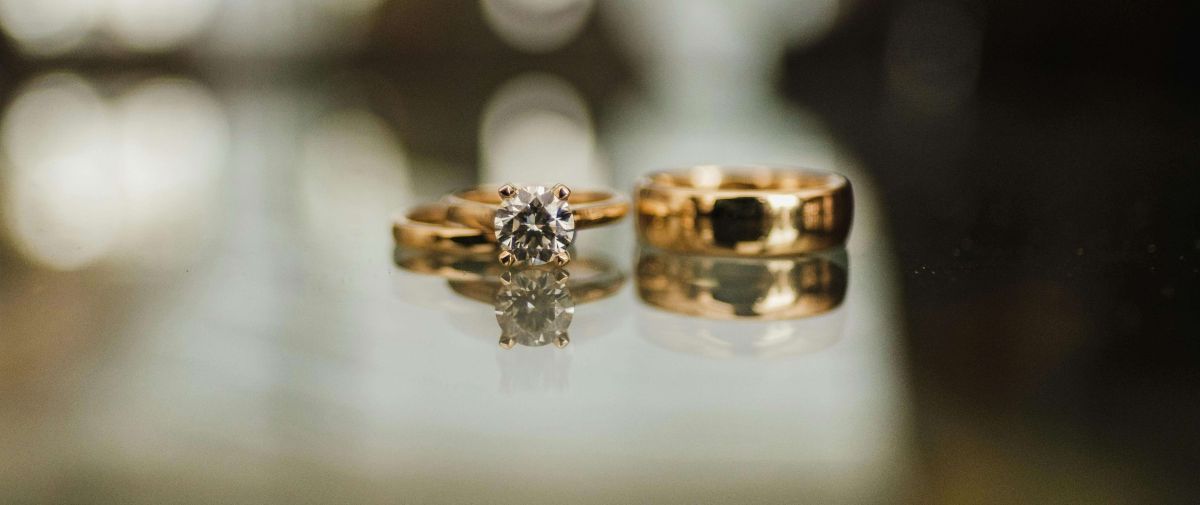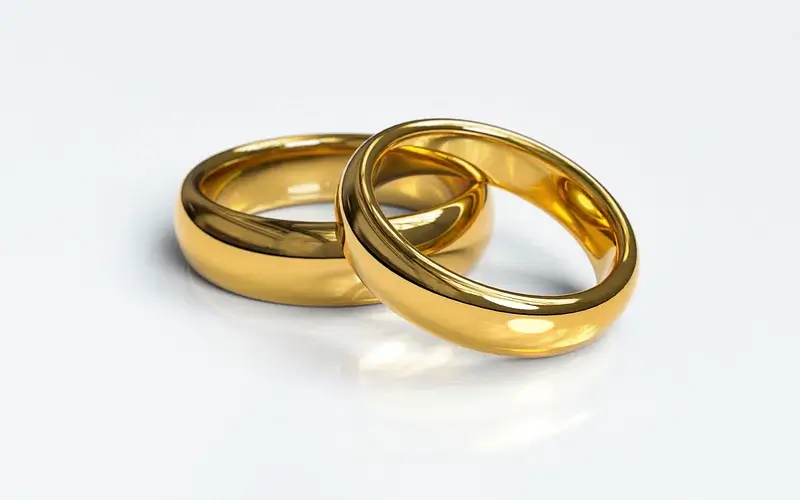1. What Are the Best Metals for Men’s Wedding Bands?
Choosing the right metal for a men’s wedding band is crucial for both style and durability. The most popular metals include gold, platinum, titanium, tungsten, and palladium. Each metal has its own unique properties, benefits, and price points that should be considered before making a decision.
- Gold: The classic choice. Available in yellow, white, and rose gold. Offers timeless elegance.
- Platinum: Known for its durability and hypoallergenic properties. It is denser and more precious than gold.
- Titanium: Lightweight, strong, and resistant to corrosion. A great option for those with an active lifestyle.
- Tungsten: Extremely durable and scratch-resistant. Available in a variety of finishes and colors.
- Palladium: Similar to platinum but lighter and often more affordable. It also offers hypoallergenic benefits.
When choosing a metal, consider your lifestyle, budget, and personal style preferences. Each metal offers a different aesthetic and level of durability, so it’s essential to choose one that fits your needs.
2. How Do I Choose the Right Size for a Men’s Wedding Band?
Choosing the right size for a men’s wedding band ensures comfort and security. The right size will feel snug but not too tight and should slide over the knuckle without much resistance. Here’s a step-by-step guide on how to measure for a perfect fit:
- Use a ring sizer or a strip of paper to measure the circumference of your finger.
- Ensure you measure your finger at the end of the day when it’s at its largest.
- Check against a ring size chart to find the correct size.
- Consider the width of the band; wider bands may require a slightly larger size for comfort.
- Always try on a few sizes to determine which feels most comfortable.
When in doubt, consult with a jeweler who can provide a professional measurement and ensure the band fits perfectly.
3. What Styles of Men’s Wedding Bands Are Available?
Men’s wedding bands come in a variety of styles to suit different tastes and preferences. Some popular styles include:
| Style | Description |
|---|---|
| Classic | A simple and timeless design, often in gold or platinum. |
| Modern | Contemporary styles with sleek lines and alternative metals like titanium or tungsten. |
| Textured | Bands with unique textures such as hammered, brushed, or etched finishes. |
| Diamond | Bands with diamond accents or settings for added elegance. |
| Two-Tone | Bands that feature two different metals or colors, offering a distinct look. |
The style you choose should reflect your personality and complement your overall look. Classic styles remain popular, but modern and textured bands offer unique options for those seeking something different.
4. Are Engravings Popular on Men’s Wedding Bands?
Engravings are a popular choice for personalizing men’s wedding bands. Many couples choose to engrave a special message, date, or symbol inside the band. Here are some popular engraving ideas:
- Initials: Engrave your partner’s initials or both your initials together.
- Wedding Date: A simple yet meaningful way to remember the special day.
- Short Quotes: Inspirational or loving quotes that hold personal significance.
- Symbols: Hearts, infinity signs, or other meaningful symbols.
- Coordinates: The location of where you met or married.
Engravings add a sentimental touch and make the wedding band unique to the wearer.
5. What Is the Average Cost of Men’s Wedding Bands?
The cost of men’s wedding bands varies widely depending on the metal, style, and additional features such as diamonds or engravings. Here is a breakdown of average costs:
| Material | Average Cost |
|---|---|
| Gold | $500 – $2,000 |
| Platinum | $1,000 – $3,000 |
| Titanium | $100 – $500 |
| Tungsten | $100 – $300 |
| Palladium | $500 – $1,500 |
Understanding the cost associated with different materials can help you make an informed decision that fits your budget.

6. Can Men’s Wedding Bands Be Resized?
Resizing a men’s wedding band depends on the material and design. Metals like gold and platinum can be easily resized, while harder materials like tungsten and titanium may be more challenging or even impossible to resize.
Consult with a jeweler to understand the possibilities and limitations based on the specific band you choose. It’s always best to get an accurate size initially to avoid potential issues down the road.
7. Are Matching Wedding Bands for Couples a Good Idea?
Matching wedding bands for couples can be a beautiful symbol of unity. However, preferences can vary, and it’s important to choose a band that suits your individual style and comfort. Some couples opt for matching metals or engravings, while others prefer entirely unique bands that complement each other’s taste.
Consider discussing with your partner and exploring various options together to find what works best for both of you.
8. How Do I Care for a Men’s Wedding Band?
Caring for a men’s wedding band involves regular cleaning and maintenance to keep it looking its best. Here are some care tips:
- Regular Cleaning: Use mild soap and water, and avoid harsh chemicals.
- Polishing: Have the band professionally polished once a year to maintain its shine.
- Storage: Store in a soft pouch or jewelry box to prevent scratches.
- Inspection: Check for loose stones or damage and consult a jeweler if needed.
Proper care ensures the longevity and appearance of the wedding band over time.
9. Can Men’s Wedding Bands Have Diamonds?
Yes, men’s wedding bands can feature diamonds or other gemstones for added flair. Many modern designs incorporate diamonds, either as a single stone or in a pattern. These bands can provide a touch of elegance and sophistication while maintaining a masculine look.
Consider your lifestyle and how the diamond placement might affect daily wear before deciding on a design with gemstones.

10. What Are the Trends in Men’s Wedding Bands for 2024?
The trends in men’s wedding bands for 2024 include a mix of classic and contemporary styles. Here are some trending styles:
- Two-Tone Metals: A combination of two metals, such as gold and titanium, offers a unique look.
- Textured Finishes: Hammered, brushed, or matte finishes are gaining popularity.
- Black Bands: Tungsten or titanium bands with black finishes are modern and sleek.
- Eco-Friendly Options: Sustainable materials and ethically sourced stones are in demand.
- Custom Engravings: Personalization with unique engravings remains a popular trend.
These trends offer a variety of options for men to express their style and preferences through their wedding bands.
Frequently Asked Questions
What is the best metal for men’s wedding bands?
The best metal for men’s wedding bands depends on personal preference, lifestyle, and budget. Popular choices include gold, platinum, titanium, tungsten, and palladium.
How should a men’s wedding band fit?
A men’s wedding band should fit snugly but comfortably, sliding over the knuckle with minimal resistance.
Are engravings on wedding bands durable?
Yes, engravings on wedding bands are generally durable, especially on metals like gold and platinum. However, regular maintenance is recommended to keep the engraving visible.
Can men’s wedding bands be customized?
Yes, men’s wedding bands can be customized with different metals, stones, engravings, and finishes to suit personal style and preferences.
Are there hypoallergenic options for men’s wedding bands?
Yes, hypoallergenic options like platinum and titanium are available for those with metal sensitivities.
What is the most popular style of men’s wedding bands?
Classic styles in gold or platinum remain the most popular, but modern designs with unique textures and two-tone metals are also gaining popularity.
How do I care for a diamond-studded wedding band?
Care for a diamond-studded wedding band by cleaning it regularly with mild soap and water and avoiding harsh chemicals. Professional cleaning and inspection once a year are also recommended.


